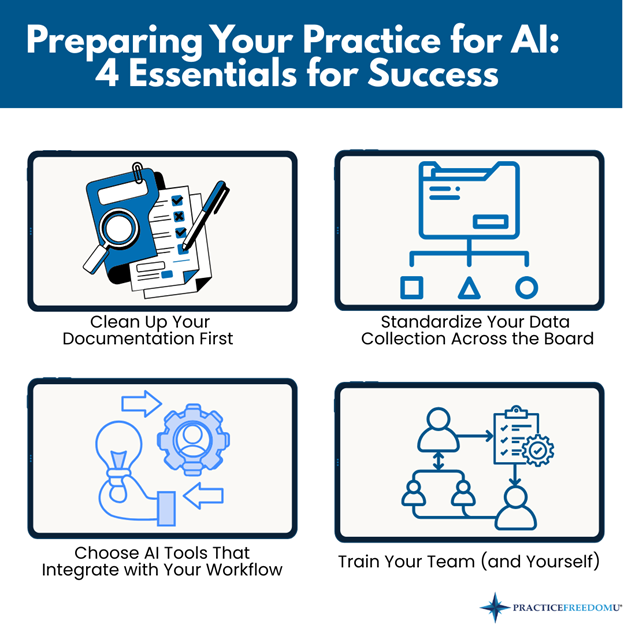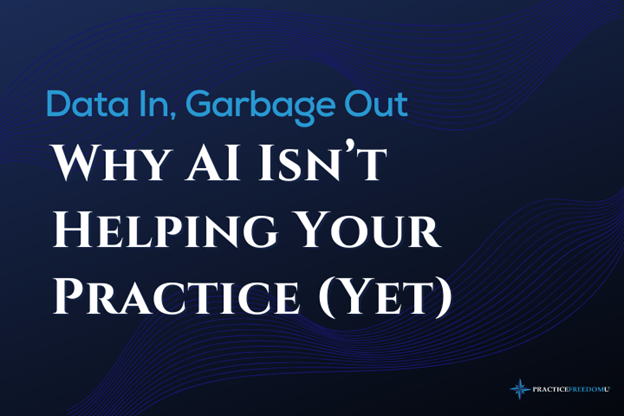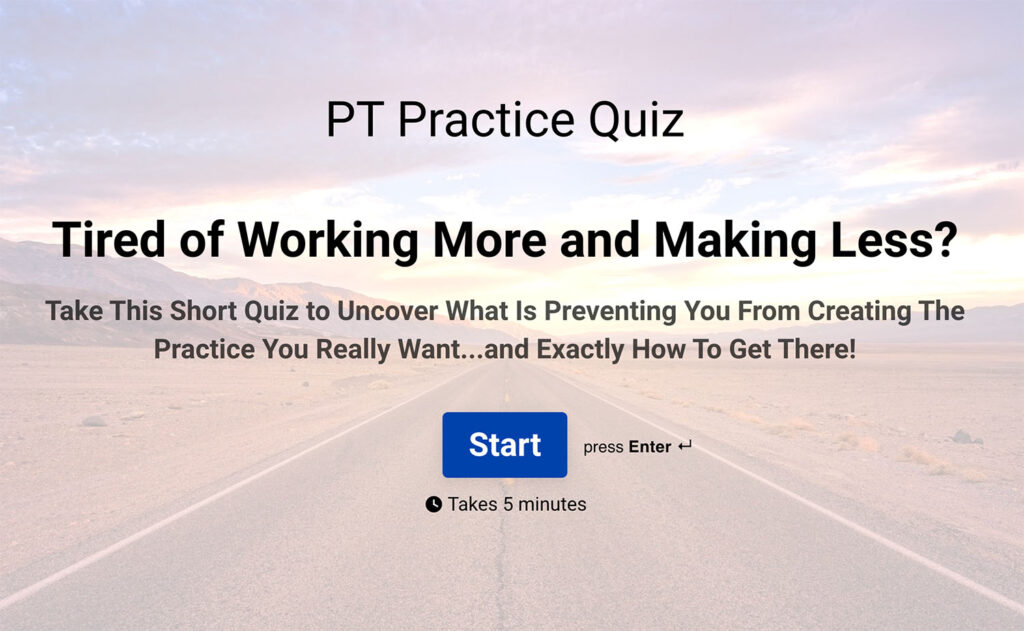You’ve probably heard it by now: AI is making waves in healthcare. It’s going to revolutionize diagnostics. Automate your documentation. Optimize your scheduling. Predict patient no-shows. Increase revenue. Decrease stress. Sounds great, right? There’s just one small problem…
Most private practices aren’t getting the results they expected from AI. In fact, some are more overwhelmed now than they were before they “upgraded.”
So, what’s going on?
The short answer is this: AI is only as good as the data you feed it. And if your documentation is sloppy, your systems are inconsistent, and your team isn’t trained on how to use it, you’re going to get one thing:
Garbage in. Garbage out.
Let’s break this down so you can actually use AI in a way that helps, not hinders your growth.
The False Promise of AI in Private Practice
AI is a powerful tool, no doubt about it. But it’s not a magic wand.
Some practice owners invest in AI software expecting it to fix everything from patient drop-off to therapist burnout. But without the right groundwork, those tools end up gathering digital dust, or worse, they create more chaos.
Here’s what I see too often:
- An EMR system that touts AI capabilities, but the data being fed into it is inconsistent or incomplete.
- Scheduling tools that predict cancellations… based on outdated or irrelevant metrics.
- Reporting dashboards that look impressive but don’t tell you anything meaningful because your intake forms or therapist notes are all over the place.
This is the danger of misaligned expectations. AI can’t make sense of disorganized input. And yet many practices are rushing in without asking the foundational question:
Is my practice ready for AI?
Problem #1: Poor Documentation = Faulty Foundations
Let’s start with the big one: documentation.
In private practice, documentation is the lifeblood of everything—compliance, outcomes, billing, scheduling, patient progress… you name it. And if your team isn’t documenting in a consistent, standardized way, no AI system in the world is going to help you make smart decisions.
Here’s what I mean:
- Therapists use different shorthand or inconsistent codes for the same conditions.
- Notes vary wildly depending on the clinician—even for the same treatment plan.
- Follow-up information is entered late (or not at all).
Now layer on AI, and you’ve got a system trying to predict or optimize based on fragmented input.
Imagine trying to bake a cake with random ingredients and no measurements. That’s what your AI is doing if your documentation isn’t clean, structured, and reliable.
Problem #2: Inconsistent Data Collection = Mismatched Metrics
Even if your documentation is decent, the way your practice collects data can be all over the place. (Bloomberg)
Most AI tools rely on structured data—things like CPT codes, patient demographics, appointment history, and billing info. But what happens when:
- Front desk staff skips certain intake questions?
- Clinicians don’t record outcome measures the same way?
- Follow-ups aren’t logged consistently in your CRM?
You start getting skewed metrics. That leads to flawed recommendations, incorrect trends, and unreliable forecasts.
AI thrives on patterns. But if your data isn’t standardized, your AI won’t know which patterns matter.
So instead of reducing no-shows or streamlining your schedule, it ends up recommending changes that make things worse.
Problem #3: Lack of Training = Tools That Don’t Get Used
Let’s say you’ve got your documentation under control. You’ve got a system in place for clean, consistent data collection. Now what? (Forbes)
Well, if your team doesn’t know how to use the AI tools—or worse, they don’t trust them—none of it matters.
Here’s what I hear from practice owners all the time:
“We bought this software but no one really uses it.”
“The front desk finds it confusing.”
“My therapists say it takes longer, not shorter, to finish notes.”
AI isn’t plug-and-play. It requires intentional onboarding, workflow integration, and leadership buy-in. Otherwise, it just becomes another shiny tool that adds noise to the system.
And in many practices, there’s fear.
Fear that AI is going to replace clinicians.
Fear that it’s micromanaging staff.
Fear that it’s just another fad that will fade in a year.
If your team doesn’t understand how AI helps them—not replaces them—they won’t embrace it.

Preparing Your Practice for AI: 4 Essentials for Success
1. Clean Up Your Documentation First
Before adding any AI solution, audit your documentation process. Are all clinicians using standardized templates? Are SOAP notes consistent? Are your outcome measures clearly defined? If not, fix this first. Implement a documentation checklist and provide ongoing training. Even minor improvements here will significantly improve your data quality.
2. Standardize Your Data Collection Across the Board
Create simple, repeatable systems for:
- New patient intake
- Clinical assessments
- Follow-up scheduling
- Discharge tracking
Make sure every team member—from front desk to therapist—knows what data to collect, when, and how.
This builds the clean data pipelines that AI needs to function properly.
3. Choose AI Tools That Integrate with Your Workflow
Not all AI is created equal. Avoid platforms that force you to completely change your systems. Instead, look for solutions that enhance your existing workflow. (The Economist)
For example:
- AI that flags missing documentation before submission.
- Tools that assist with coding accuracy in real time.
- Predictive scheduling based on YOUR practice’s patterns—not generic national benchmarks.
If the tool can’t integrate with your people and processes, it’s not the right tool.
4. Train Your Team (and Yourself)
Set aside time to train, retrain, and communicate the purpose behind AI adoption.
- Show staff how the tool saves them time.
- Involve them in the rollout process.
- Create a feedback loop for what’s working and what’s not.
Leadership starts at the top. If you don’t believe in it—or if you’re disconnected from how it’s being used—your team will feel the same.
A Better Future for AI in Your Practice
Here’s the truth: AI isn’t going anywhere. And it can absolutely help your private practice run smoother, deliver better care, and become more profitable.
But it’s not about the tech. It’s about building the foundation that makes AI useful.
Clean documentation.
Consistent data.
Clear training.
Connected leadership.
When you focus on those things first, AI becomes a tool—not a distraction. And instead of garbage in, garbage out… you get something much better:
Insight in. Impact out.
Ready to Get Your Practice AI-Ready?
If you’re serious about using technology to grow your practice, start by looking inward.
Ask yourself:
- Are my systems clean enough to support smarter tools?
- Does my team know what’s expected of them with documentation?
- Am I investing in training and support—not just software?
Because the truth is, AI can’t fix disorganization. But it can multiply clarity.
If you want help evaluating your practice’s readiness, I offer strategic coaching that walks you through this exact process. Together, we can make sure you’re not just buying tech—but building a business that’s ready to thrive with it.
At Practice Freedom U, we help private practice owners build the systems, leadership, and clarity needed to grow—without burning out or chasing shiny tools. If you’re considering AI or already wrestling with tech that isn’t delivering, we’ll show you how to strengthen your foundation first. Our coaching programs are built around simplifying your operations, training your team, and turning insight into action. Because when your practice runs on clarity, not chaos, every tool—AI included—starts working for you, not against you.
Let’s build the practice you’ve always wanted—with the tools that actually help you get there.
————————————————————-
Are you ready for a coach? Join the hundreds of physical therapy owners who are building the practice of their dreams with the support, guidance and direction of a Practice Freedom U Coach. Take the first step towards creating a business that sets you free by scheduling a Discovery Call



